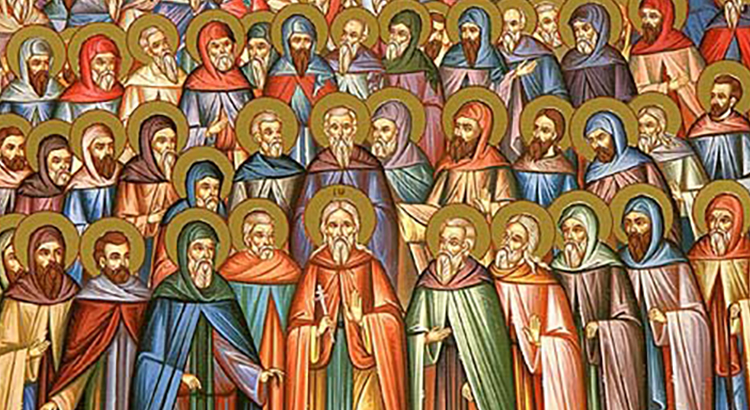Memory of the Saints and the Prophets
Memorial of Saint Anselm (+1109), a Benedictine monk and bishop of Canterbury, who suffered exile for his love for the Church.
Reading of the Word of God
Alleluia, alleluia, alleluia
You are a chosen race,
a royal priesthood, a holy nation,
a people acquired by God
to proclaim his marvellous works.
Alleluia, alleluia, alleluia
John 6,35-40
Jesus answered them: I am the bread of life. No one who comes to me will ever hunger; no one who believes in me will ever thirst. But, as I have told you, you can see me and still you do not believe. Everyone whom the Father gives me will come to me; I will certainly not reject anyone who comes to me, because I have come from heaven, not to do my own will, but to do the will of him who sent me. Now the will of him who sent me is that I should lose nothing of all that he has given to me, but that I should raise it up on the last day. It is my Father's will that whoever sees the Son and believes in him should have eternal life, and that I should raise that person up on the last day.
Alleluia, alleluia, alleluia
You will be holy,
because I am holy, thus says the Lord.
Alleluia, alleluia, alleluia
'I am the bread of life. Whoever comes to me will never be hungry, and whoever believes in me will never be thirsty." The Lord's promise was finally fulfilled. Jesus also responded to the hunger for salvation hidden in the hearts of people: hunger for meaning of a life that does not end with death and leads to complete happiness. Jesus was the heaven-sent answer that everyone could accept and make his or her own. However, Jesus notes with bitterness that many, although having seen the signs he performed, did not open welcome his word. And he reiterates his availability to all: "Anyone who comes to me I will never drive away." All who came closer to Jesus were welcomed; it was sufficient to knock to receive an answer. Had he not said to the crowds that were following him: "Come to me, all you that are weary and are carrying heavy burdens and I will give you rest"? Besides, he had come down from heaven for this very reason: to do the will of the Father who had sent him; and the Father's will was clear that he should not lose anyone that had been entrusted to him. The commitment to save everyone, not losing anyone, is the continual labour of the Lord Jesus. This is his true and only pastoral "program" that appears evident and clear in the parable of the lost sheep. Jesus wants to describe not only his passion to save even one sheep but also his availability to run risks and traverse perilous terrains to save those who are lost. This is Jesus' constant worry. And he wants his concern to be that of the Church and of his disciples.
